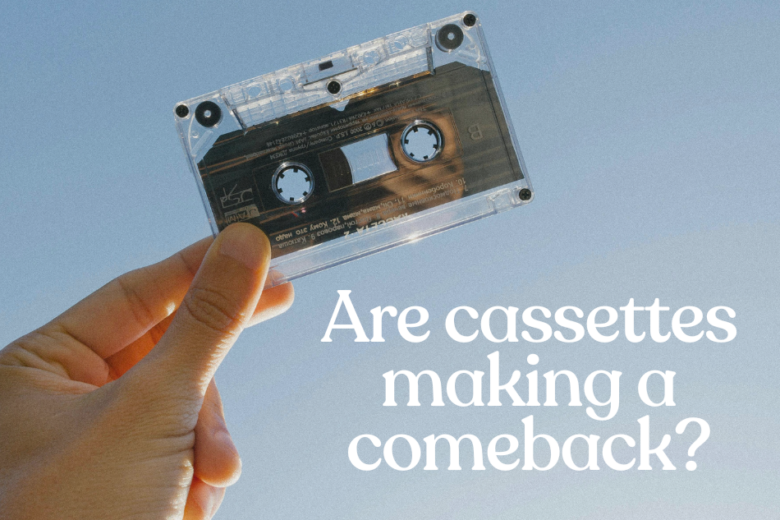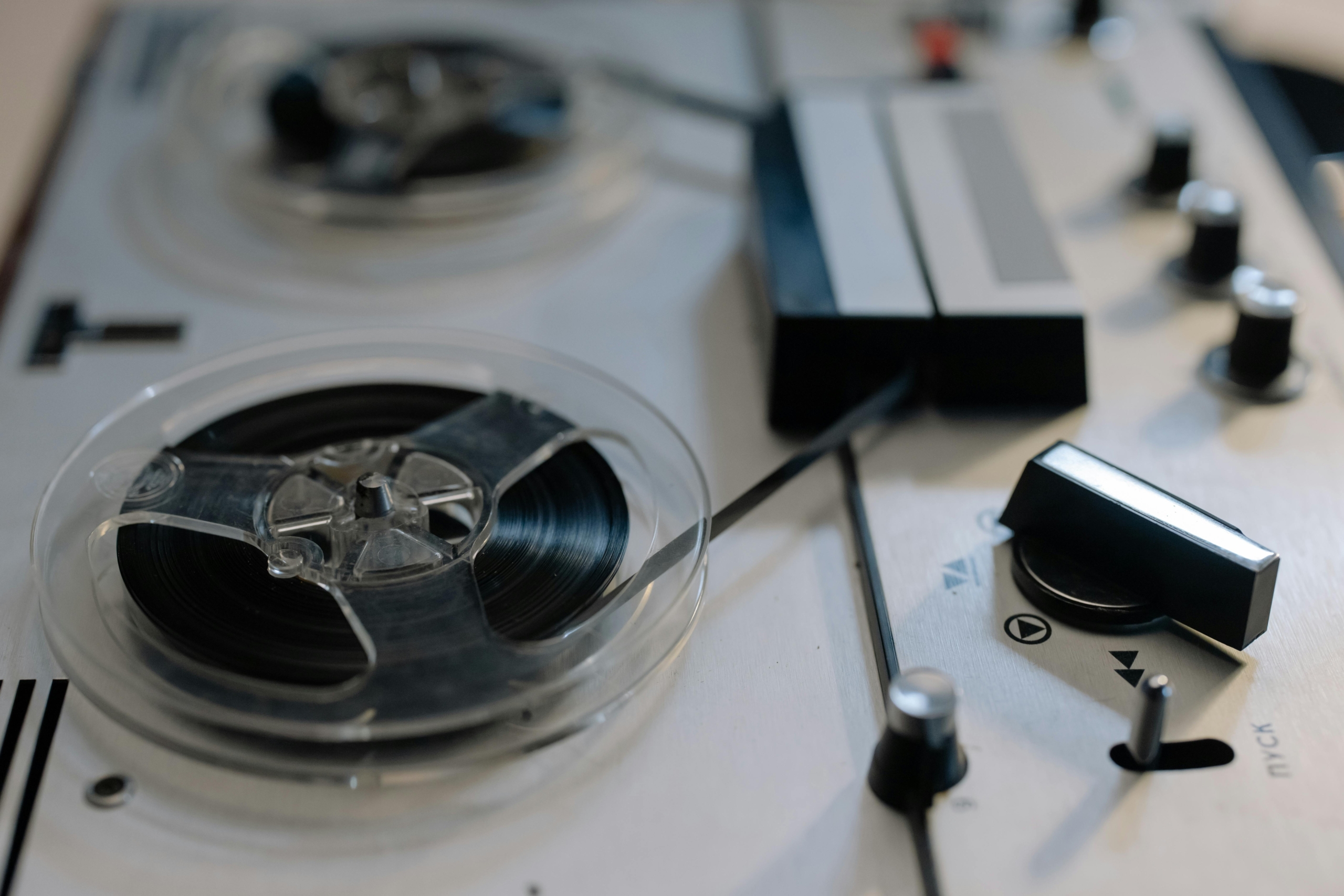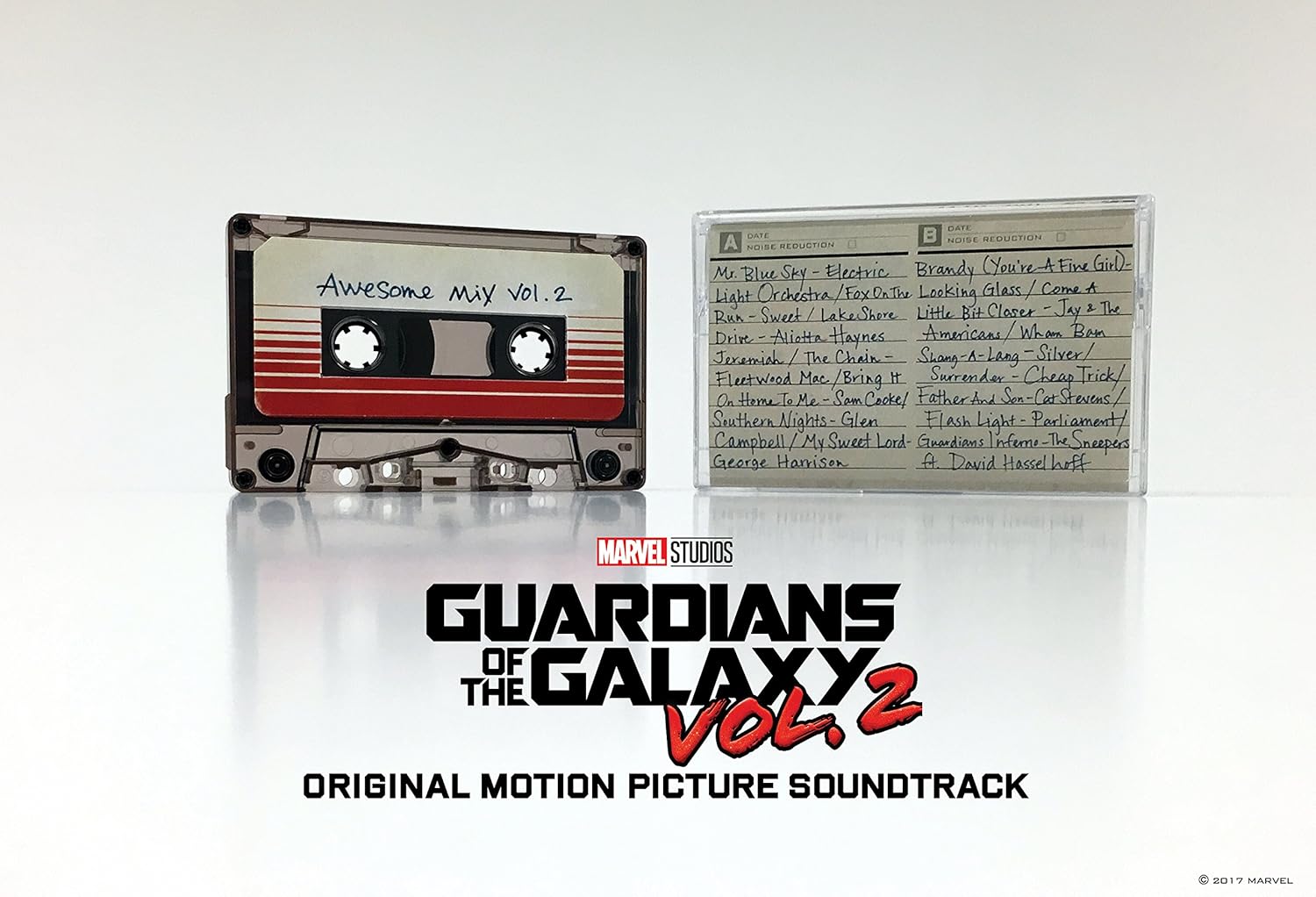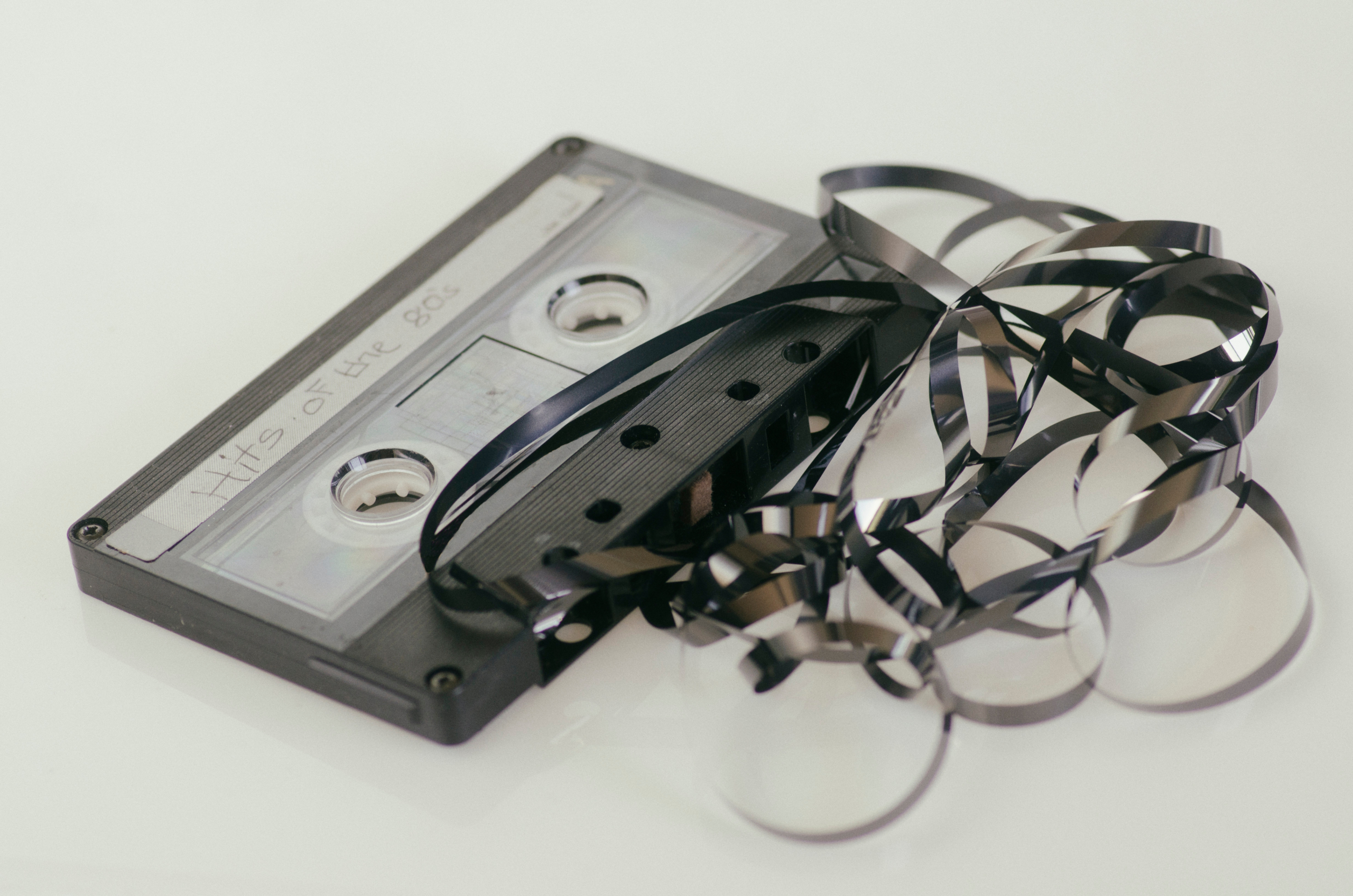While most people open Spotify or YouTube to listen to music, there’s still a market for physical products — and we’re not just talking about CDs. Over the past two years, artists like Taylor Swift, Dua Lipa, and Sabrina Carpenter have topped a lot of charts, including cassette sales.
Yes, you read that right! These chart-topping artists are releasing their music on cassette tapes — and they’re getting sales. This raises the question: are cassettes making a comeback?
THE RISE AND FALL OF CASSETTE TAPES
The compact cassette was invented and launched by Philips in the 1960s, not only bringing portability to the music market but also making it easy for anyone to record their own audio.
CASSETTES REPLACE REEL-TO-REEL AND VINYL
Before cassettes, most audio recordings were done on reel-to-reel machines that were big, bulky, expensive, and required training to operate. The industry went from professionals recording audio and carefully transporting them on vinyl to consumers making their own recordings and carrying them around in their pockets.
It was a big change, enabling people to create and share mixtapes and playlists with relative ease. In 1979, things got even crazier thanks to the release of the very first Sony Walkman. The tiny cassette player came with a set of headphones, allowing people to listen to music on the go.
This helped the popularity of cassettes skyrocket even further, especially as prices decreased during the 1980s. When the 1990s hit, however, a new format knocked the cassette off its pedestal.
CDS AND MP3S TAKE DOWN CASSETTES
The Compact Disc (CD) was co-developed by Philips and Sony, and it could hold 74 minutes of audio. Its sturdy format and high-quality digital audio put cassettes in an awkward position — people either wanted the ease and efficiency of CDs or the rich analog quality of vinyl. Cassettes didn’t really offer anything of value anymore, and people only used them in aging car stereos.
In the 2000s, MP3s started getting big, with people buying music players like iPods and eventually just buying MP3s on their smartphones. Then, in the 2010s, streaming services like Spotify gained popularity, and huge numbers of people stopped buying music altogether, paying a monthly fee to listen to unlimited music instead.
ARE CASSETTES MAKING A COMEBACK?
So, in a world where you can listen to almost any song just by typing its name into YouTube or Spotify, are people really buying cassettes again? Well, we’re not talking about millions of sales. The top-selling cassette of 2023, for example, was the Guardians Of The Galaxy soundtrack, with around 18,000 copies sold.
If you’ve seen the film, it’s easy to see why this sold. The soundtrack of the film is also an in-universe playlist the characters listen to, and it’s stored on a 1980s cassette tape from the protagonist’s childhood. The real-life cassette tape was made to look exactly like the film version, giving it obvious value as a collectible. In other words, there are likely a lot of people who have bought these specific tapes but will never buy another cassette again.
As for the proper cassette market, around 430,000 cassette tapes were sold in the United States altogether in 2023. Not everyone is releasing their music on cassette, of course, it’s mostly artists like Taylor Swift and Sabrina Carpenter who have a certain “retro” vibe to their brand. The way cassette tapes look is perfect for an Instagram post with a certain aesthetic or a retro music room in your house. You could also call it nostalgia, though a large chunk of the people buying cassettes now were not alive or old enough to buy them the first time around.
We know the tapes are selling, but we don’t know much about the ownership of cassette players and how many people are actually listening to the tapes they buy. It’s just as likely that people buy tapes as a collectible and a decoration but continue to listen to the music on Spotify.
WHY CASSETTE TAPES ARE MAKING A COMEBACK
From their retro charm to their unique sound, there are a lot of reasons why cassette tapes are making a comeback. Here are the biggest selling points (and limitations) of cassettes in today’s world:
PROS
- Cassettes have a unique sound compared to digital audio files, often referred to as “warmth.”
- The analog nature of the recording also results in artifacts like tape hiss and other imperfections that can add to the listening experience.
- If you want to start a physical music collection, cassette tapes are likely the most inexpensive way to do it.
- Since cassette sales have been rising for a few years now, the market is also responding with new and affordable cassette players.
CONS
- The lower sound quality is a thing of personal preference — some people simply won’t enjoy it.
- It’s less convenient for on-the-go listening or sharing when compared to streaming.
- You will have to buy and maintain a cassette player.
- Tapes are fragile, prone to wear and tear, and won’t last forever.
WHO IS FUELLING THE CASSETTE COMEBACK?
There are three main groups of people buying cassette tapes at the moment, the first of which is Gen Z. They like the retro aesthetic, and they’ve never experienced analog music before, so it’s fun to experiment with it.
The second group includes fans of indie music who want to support the smaller bands they like when they launch a limited release on cassette. This is often akin to buying merchandise — the fans likely already own the music elsewhere and buy the tape as a collectible to support the band.
The third group covers the collectors and enthusiasts — people who never stopped loving cassettes, vinyl, and other retro formats. They suddenly have a lot more opportunities to buy cassettes easily and are probably enjoying this inexpensive way to expand their collections.
WILL THIS AUDIO CASSETTE COMEBACK LAST?
It’s hard to say how long this little cassette comeback will last, but we do know how long the tapes themselves will last — around 30 years. This probably sounds like a long time to the young people buying them right now, but as soon as you start picking up vintage tapes, this lifespan becomes a lot more relevant. Plus, you need to put specific effort into storage and maintenance to reach the 30-year mark.
If you love the unique sound of your tapes and don’t want to go back to the boilerplate digital release, there is another option. You can digitize your personal tapes, which will capture every hiss and imperfection in digital form. That way, even when you don’t have your tape player on you or the tapes become too old, you can still hear your unique copy of the song.
Reach out to EverPresent today to discuss digitizing your cassette tapes.




